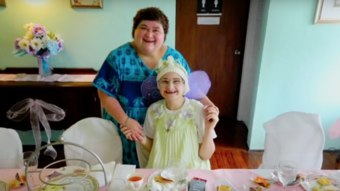“Fake” Syndromes: Patients Fake Symptoms of Diseases and Mental Disorders – Lifestyle
2 min read
The term Munchausen syndrome was coined by English physician Richard Usher in 1951 to describe people who deliberately fake physical symptoms in order to receive treatment. One form of the disorder is Munchausen syndrome by proxy, when a person simulates illness in a third party, most commonly in children, when an adult—usually the mother—fabricates symptoms with the aim of drawing attention to themselves.
A well-known case is that of American Claudine “Dee Dee” Blanchard and her daughter, Gypsy Rose. The mother invented countless diseases for her daughter, from asthma and leukemia to chromosomal abnormalities. Because of the many medications Dee Dee took, Gypsy ended up getting sick. The girl, who had her head shaved several times by her mother to simulate chemotherapy, lost even her teeth and lived in a constant state of mental turmoil.
Until 2015, when she turned 18, Gypsy realized the situation and decided to quit, convincing her then boyfriend to brutally kill her mother. He is serving a life sentence, and her release is scheduled for 2024.
Munchausen syndrome is the climax of the so-called factitious disorders, which are essentially the same condition, but in a mild form. Looking closely, something similar seems to be growing these days, but with simulated mental disorders, with the aim of justifying inappropriate behaviour, incompetence, escaping responsibility or simply to gain attention.
They are healthy people, but they claim, for example, that they have compulsive shopping — to justify their financial irresponsibility — or suffer from ADHD or accelerated thinking syndrome — out of sheer lack of patience or even laziness to think or learn — and falsify Many other mental conditions as excuses to get some kind of differentiated treatment.
However, by believing that fake diagnoses will bring them benefits, such as more attention or fewer demands, these people are missing out on real opportunities for learning, growth, and a successful life, believing that the strategy will work forever. These are the people who, in the manner of Dee de Blanchard’s brutal end, kill their own future, perhaps encouraging others to do the same.
When we face the frightening growth of mental illnesses, syndromes, and disorders, there is no doubt that our society is sick. However, in addition to caring for those who are truly ill, health professionals have to deal with “fake” patients, who fill themselves with non-existent disorders in an attempt to fill empty lives.
This analysis is just a superficial brushstroke on a topic that needs to be deeply studied, discussed and publicized, so that the false symptom fad does not turn into a real epidemic.

“Entrepreneur. Music enthusiast. Lifelong communicator. General coffee aficionado. Internet scholar.”

:strip_icc()/s04.video.glbimg.com/x720/11792055.jpg)

:strip_icc()/s03.video.glbimg.com/x720/11786998.jpg)



